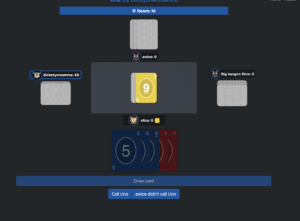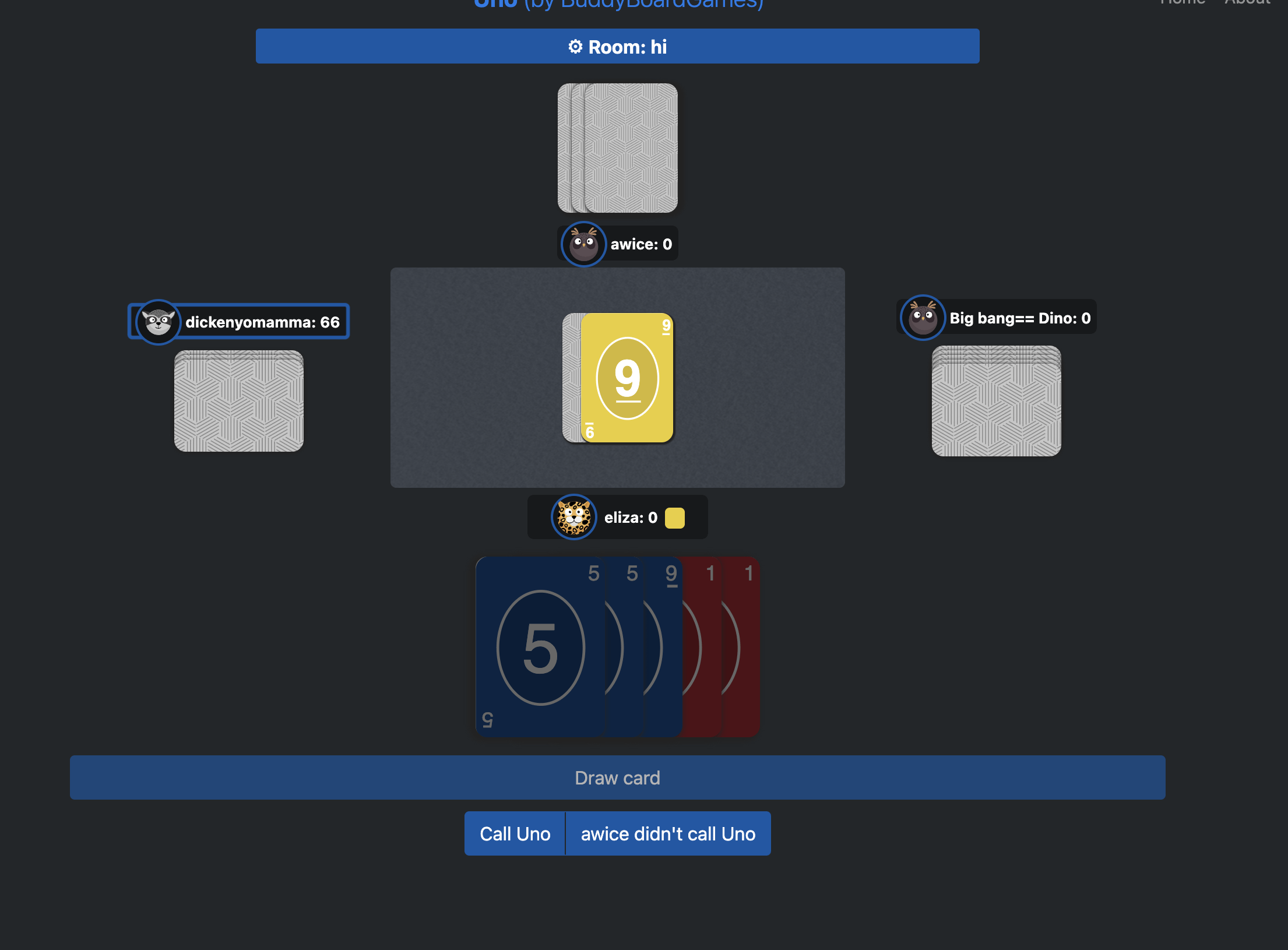Uno, a popular card game enjoyed by people of all ages (and created by Merle Robbins), may seem harmless at first glance. However, I’ve come to realize that its reliance on chance and randomness can cultivate addictive behaviors, especially when players start to perceive the game as involving a significant degree of skill. In this essay, I will explore how Uno’s mechanics compare to other games of chance, how it engages with probability, and the potential risks it poses for developing addictive habits.
Uno, with its vibrant colors and simple rules, has always been a staple in my social gatherings. The game involves players matching cards by color or number, with special action cards that can dramatically change the game’s outcome. This mix of predictability and randomness makes it thrilling and, potentially, addictive. During an online session of Uno with friends, I noticed several reactions that highlighted the game’s addictive potential. Emotional outbursts such as “IM GONNA BREAK SOMETHING” and “NO WAY YOURS IS GREEN” exemplified the frustration and excitement experienced by players. Such emotional highs and lows are characteristic of gambling addiction, where the unpredictability of the outcome keeps players engaged.

the online uno that we played
The perception of skill in Uno is another critical factor contributing to its addictive nature. Comments like “Certain types of cards are more important to keep” and “There’s always a chance of winning in Uno!” suggest that we, the players, believe there is a strategic element to the game. This perception, albeit minimally true, can make the game more addictive as players feel their decisions impact the outcome. The social interaction in Uno adds another layer of engagement, making it harder for players to step away. Phrases like “Amor, it’s your turn! Dumbo” and “Fuck you, Eliza, you know what, win the game” highlight the game’s social nature, which enhances its appeal and potential for addiction.

my friend alice after saying “amor, it’s your turn!”
Comparing Uno to other games of chance, such as poker or slot machines, reveals both similarities and differences. Poker involves a significant amount of skill in reading opponents and making strategic decisions, while slots are purely chance-based. Uno lies somewhere in between, with a small element of strategy overshadowed by the randomness of card draws. Both poker and slots can lead to addiction through the gambler’s fallacy and the intermittent reinforcement of wins. Uno’s randomness and occasional strategic plays provide a similar form of intermittent reinforcement, keeping players hooked. While Uno typically doesn’t involve money, introducing bets could significantly increase its addictive potential. The perception of skill, coupled with monetary rewards, can lead to gambling behaviors.
Incorporating ideas from course content, such as formal elements and the MDA (Mechanics, Dynamics, Aesthetics) framework, further illuminates Uno’s addictive potential. Uno’s core mechanics involve card matching, drawing, and playing action cards. These mechanics create a dynamic game flow where players experience sudden shifts in fortune. The unpredictable nature of card draws and the impact of action cards lead to high variability in each game, contributing to the thrill and engagement. Uno provides an emotional rollercoaster, with moments of victory and frustration. The visual appeal of the cards and the simple, easy-to-learn rules add to its accessibility and widespread appeal.
Uno’s engagement with probability is central to its potential for addiction. The game’s randomness means that every turn holds the promise of a comeback, reinforcing the notion that (as one of my friends said) “There’s always a chance of winning in Uno!” This belief keeps players invested, hoping for that lucky draw that turns the game in their favor. To illustrate these points, consider the following reactions during our online game session: “WHAT???? THIS IS THE STUPIDEST RULE IN THE WORLD” highlights the frustration with unpredictable outcomes. “CHAT GPT F***ING MIGHT AS WELL HAVE MADE THIS” reflects the feeling of helplessness against random chance. “WHAT ARE THE ACTUAL ODDS RED DIDN’T COME FOR 10 TIMES IN A ROW ” captures the addictive belief in that the odds should be in your favor by default.

my friend naren after saying “WHAT???? THIS IS THE STUPIDEST RULE IN THE WORLD”
While Uno itself may not directly lead to addiction, its elements of chance and minimal skill can foster addictive habits, especially if played with monetary stakes. The game’s randomness, combined with the emotional and social aspects, creates an engaging experience that can be hard to put down. Understanding these dynamics is crucial for recognizing the potential risks and ensuring that this beloved game remains a source of fun, not addiction.




